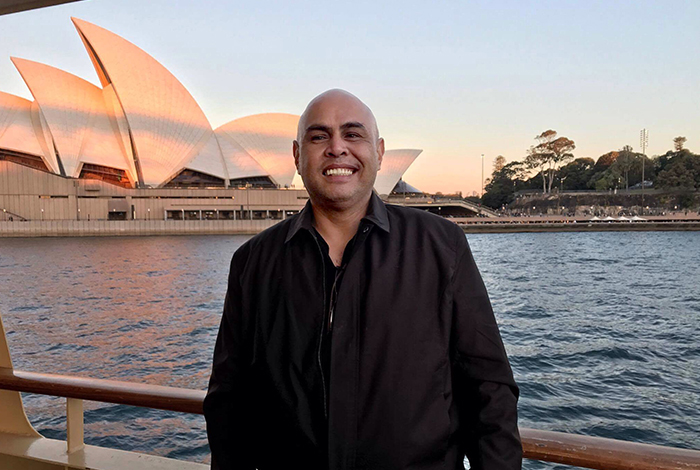What Inbound Marketing Looks Like
May 23, 2015Writing Tips for Marketers Part2: 5 Content Angles a Marketer Must Try
May 28, 2015In the years I’ve spent writing for a publishing company with a readership across Asia Pacific, US and Europe, I’ve covered, among other topics, new and unique dining experiences. Of these, three chefs stand out in my memory. One aimed to challenge Bangkok’s culinary culture with his deconstruction of Thai cuisine; another courted Hong Kong with artistic, almost abstract plating; the third created a new type of restaurant by invoking intensely all five senses.
What made them take such inventive, daring approaches to food and dining was their non-culinary backgrounds. The first started out as an engineer; thus, his penchant for looking at the parts of a whole and piecing them together in different ways to create a coherent, and maybe even improved, whole. The second studied Fine Arts and began a career as a painter against his parents’ wishes. This helped him create dishes that resembled beautiful abstract art. The third chef had had a successful culinary career by the time he opened his avant-garde restaurant, but what made it so appealing and celebrated worldwide was his integration of food with technology, psychology, music and other fields.
Many marketers say that because they haven’t been formally trained as writers, they can’t write.
Why does this matter in a post about writing tips for marketers? Because I’ve heard many marketers say that because they haven’t been formally trained as writers, they can’t write. In school, Marketing courses are typically classified under Commerce, while Advertising falls under Commerce or Fine Arts. These programmes don’t tend to offer heavy writing courses or teach how to write in various genres. And so these marketers believe they can’t do it.
If that sounds like you, take heart from these three chefs. You don’t need a writing degree to write well. Writing is about the way you think. The way you look at the world. The way you listen to people.
Writing is about the way you think. The way you look at the world. The way you listen to people.
If you think that you, as a marketer, need to improve your writing, try starting with these three mental habits that make us seek, see and tell stories.
The Three Habits
1. Observation. Look at things around you. Notice the way people walk, speak, fidget, wander, or eat. On a bus, listen to conversations; if it’s silent, study facial expressions. Walk around your city. Listen when people speak, and listen closely. When at a cafe, really be there; pause from your writing to people-watch. (Once, in Paris, I noticed that the chairs outside some cafes were lined up to face the street instead of each other. A French architect explained that it’s because they like to people-watch. Whether that was true or the chairs just had to be shaded from the snowfall, the story-seeker in me loved the idea.)
- Find connections. Think like a sleuth. I once interviewed a 36-year-old ex-convict who sported hair dyed red and basketball jerseys. He had always dreamt of a wife and a white-collar job. He took odd jobs if they came, sang karaoke with his friends almost every night, got imprisoned once in a while, and talked about God. He was very proud of a talent:blowing out the tune of Titanic’s My Heart Will Go On on a leaf. When he demonstrated it, though, the sound came out hollow, and he explained that it had been quite different when he was young. That incident became the story’s defining metaphor — that of youthful dreams surviving, but gone hollow.
Another example is of Mike, a journalist who sought to find a new angle in reporting about mental hospitals. After several visits, he got to know Sanito, who had worked for decades as a janitor at the hospital. Sanito spoke of things he had witnessed, including a nurse and a patient falling in love with each other. Mike connected the (phonetic) dots and wove the human interest story around Sanito, doing sanitation work in an institution for the insane.
3. Adjust your perspective. Sometimes all it takes to find your voice and niche is to adjust your perspective. When a murder rocked an otherwise peaceful town in 1959, reporters went beyond the details of the crime to describe how the locals had started locking their doors at night, which they had never felt the need to do before. One journalist went even further, investigating the suspects’ lives and the events that had caused their decisions. At the same time, he portrayed a human and sentimental side of one suspect. The reporter was Truman Capote, whose book narrating the suspects’ story, In Cold Blood, has since spurred three film adaptations.
What Next?
These habits help you develop a frame of mind that is always observant and keen on details. Try them out on your everyday commute to work, at your favourite restaurant, or with your loved ones. You’ll soon notice patterns, connections and nuances you might have glossed over before.
Once you do find these things, develop another habit: take notes. Bring a small notebook and pen, write things on Evernote, or dictate them to your phone. This can become a repository of ideas for blog posts, especially for days when you can’t think of a topic.
What Do You Do Once You’ve Found a Topic?
In Part 2 of this post we’ll talk about possible angles for tackling your topic. This step requires a knowledge of your audience, so if you need to review buyer personas real quick, check out our visual explanation on SlideShare. Once you’re ready, watch for Part 2 of this two-part blog on writing tips for marketers: Five Content Angles a Marketer Can Use.

Topics: Web Marketing



